Jichang Garden – Ticket, Opening Hours, Location, and Highlights

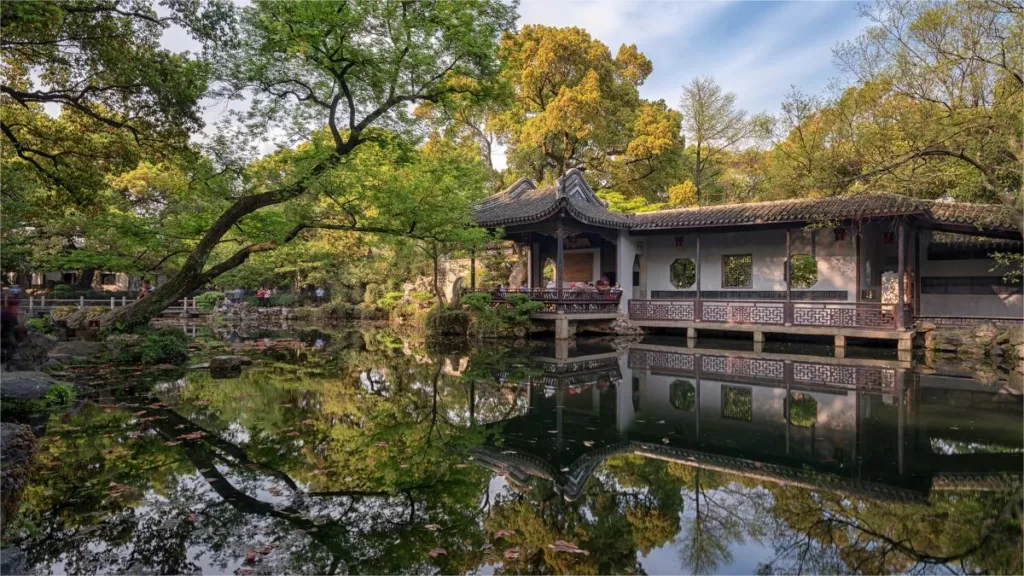
Nestled within the serene confines of Xihui Park lies a gem of classical Chinese garden design, Jichang Garden (寄畅园). This enchanting garden, located in Wuxi, is a testament to the beauty and artistry of traditional Chinese landscaping. Jichang Garden seamlessly incorporates the natural splendor of Huishan Mountain’s spring waters, creating a picturesque aquatic landscape of the distant Longguang Pagoda on Xishan Mountain, reflected in the garden’s tranquil ponds. With its unique layout and historical significance, Jichang Garden stands as one of the most treasured classical gardens in China, having been built in 1520 during the Ming Dynasty and flourishing through the Ming Wanli period to the Qing Kangxi era. It is celebrated alongside other renowned gardens such as Nanjing’s Zhan Garden, Suzhou’s Humble Administrator’s Garden, and Lingering Garden, collectively known as the “Four Great Gardens of Southern China.”
The heart of Jichang Garden revolves around its central feature: a combination of artificial hills and tranquil ponds. These picturesque elements are complemented by a series of elegant pavilions, corridors, and a bridge, which gracefully encircle the water, enhancing the overall aesthetic. Additionally, the garden’s water features are enriched by the infusion of water from Huishan Mountain’s springs, providing a soothing and melodious backdrop that has earned the name “Ba Yin Jian,” meaning “Eight-Tone Brook.”
Jichang Garden holds a special place in Chinese history, as it was a favorite retreat of two Qing Dynasty emperors, Kangxi and Qianlong. These emperors frequently visited the garden during their southern tours, leaving behind commemorative plaques inscribed with their poetic words. The influence of Jichang Garden even extended to the construction of other imperial gardens like the Harmonious Garden in the Summer Palace (Yiheyuan) in Beijing and the destroyed Yuanmingyuan (Old Summer Palace), which both drew inspiration from Jichang Garden’s timeless design.
Table of Contents
- Basic Information
- Location and Transportation
- Highlights of Jichang Garden
- Vlog about Jichang Garden
- Attractions near Jichang Garden
Basic Information
| Estimated Length of Tour | 2 hours |
| Ticket Price | 70 RMB |
| Opening Hours | 8.00 – 17.00; Last admission: 16.30 (Monday – Friday) 8.00 – 17.30; Last admission: 17.00 (Saturday and Sunday) |
| Telephone Number | 0086-0510-83333833 |
Location and Transportation
Jichang Garden, known for its timeless beauty and historical significance, is nestled within the Huishan Ancient Town Scenic Area in Liangxi District, Wuxi, Jiangsu Province, China. This picturesque garden is situated on the eastern foothills of Huishan Mountain on the eastern outskirts of Wuxi city, in close proximity to the renowned Huishan Temple.
Bus: Take bus 4, 10, 15, 16, 43, 56, 66, 75, 76, 81, 83, 87, 98, 139, 158, 316, 507, 610, or 611 and get off at Longguang Road Stop.
Metro: The closest metro station to the town is Huishan Ancient Town (惠山古镇) on line 4. After getting out of the station from Exit 6, you will be standing right at the tourist center.
Highlights of Jichang Garden
Layout and Design
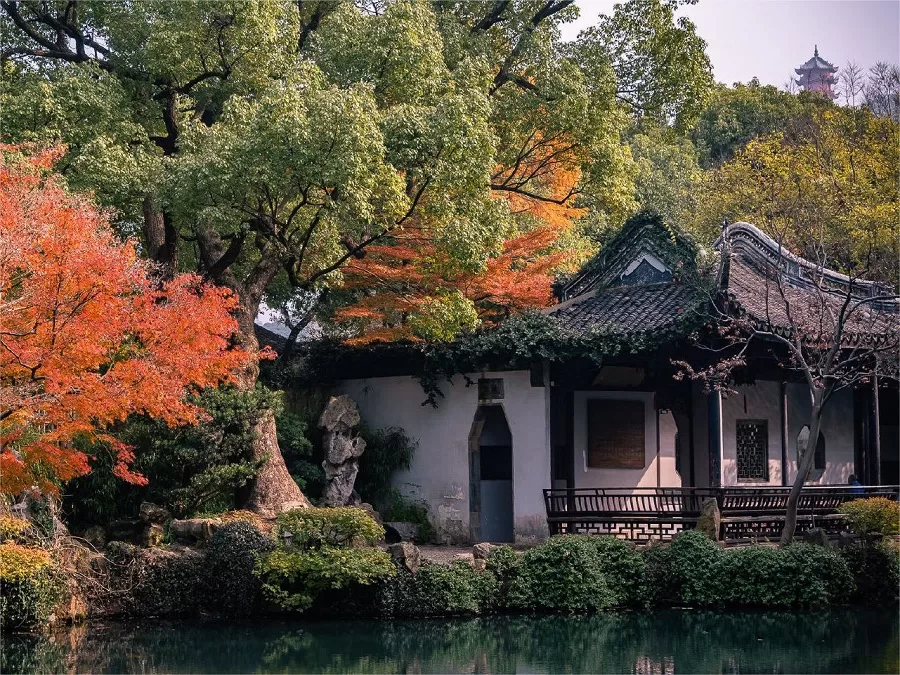
The architectural elements within Jichang Garden occupy a relatively small portion of its overall layout. The primary focus of the garden is the harmonious blend of natural elements, particularly the lush vegetation and the water features. The southern and northern sides of the garden are divided by artificial hills and are surrounded by tall trees, forming a distinct, peaceful environment around the water features. The western, southern, and northern sides of the pond are adorned with waterside pavilions, corridors, and fences that cast captivating reflections in the water, creating a sense of tranquility. When viewing the garden from these pavilions and corridors, the juxtaposition of the artificial hills and waterside structures against the natural backdrop of the pond provides a delightful contrast between the natural and the man-made.
Ancient Architecture
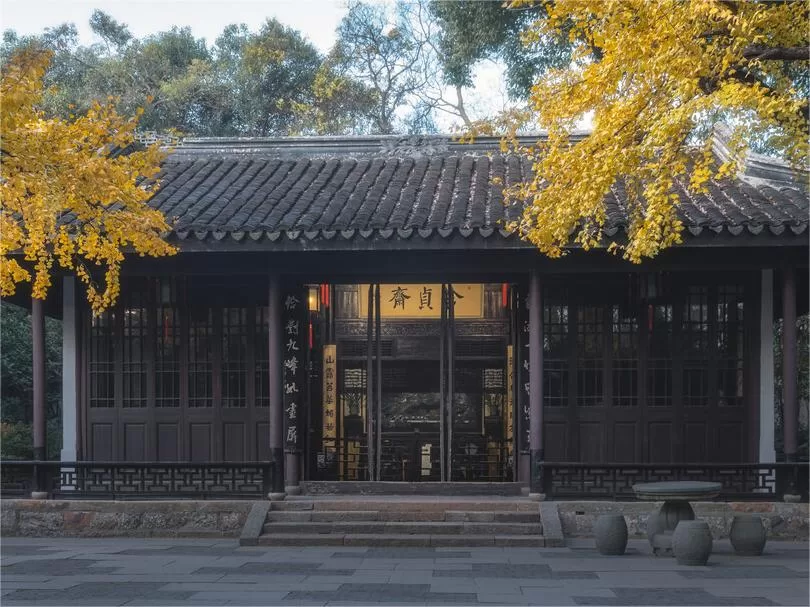
There are various ancient architectures in the Jichang Garden with exquisite designs and ornaments:
- The entrance to Jichang Garden is marked by a collection of ancient buildings known as the “Gate Hall,” situated by the Moon Pond at Huishan Temple. This tranquil courtyard features a simple three-bay hall that was initially a temple but later became the garden’s entrance.
- The Bingli Hall, covering an area of 667 square meters, includes neat and elegant halls, a tablet corridor, as well as a pool, flowering plants, and Taihu rocks, all in perfect harmony.
- The Hanzhen Study was the personal study of Qin Yao, the third-generation owner of Jichang Garden, and is surrounded by ancient pine trees.
Nine Lions Terrace
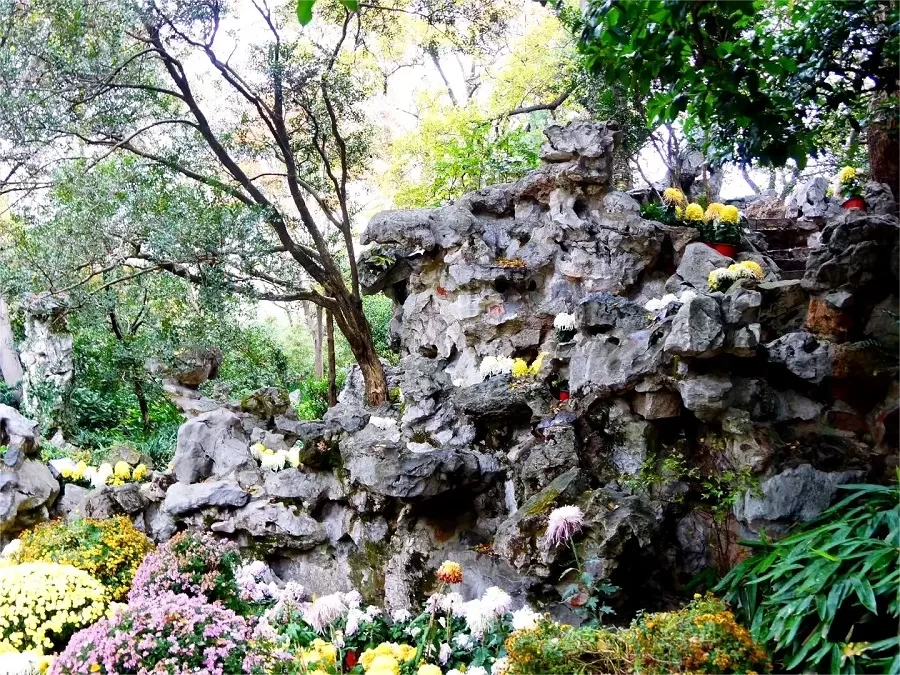
Located opposite the Hanzhen Study, the Nine Lions Terrace, also known as the “Nine Lions Rock,” is an impressive rockery made of Taihu stones, towering several meters in height. This grand rockery is adorned with several lion-shaped stones, collectively forming a massive male lion that appears to rest amidst the lush greenery. The juxtaposition of the motionless lion amid the tranquil natural surroundings creates a sense of dynamic stillness and adds a whimsical touch to the garden’s overall charm.
Vlog about Jichang Garden
Attractions near Jichang Garden

Huishan National Forest Park

Plum Garden
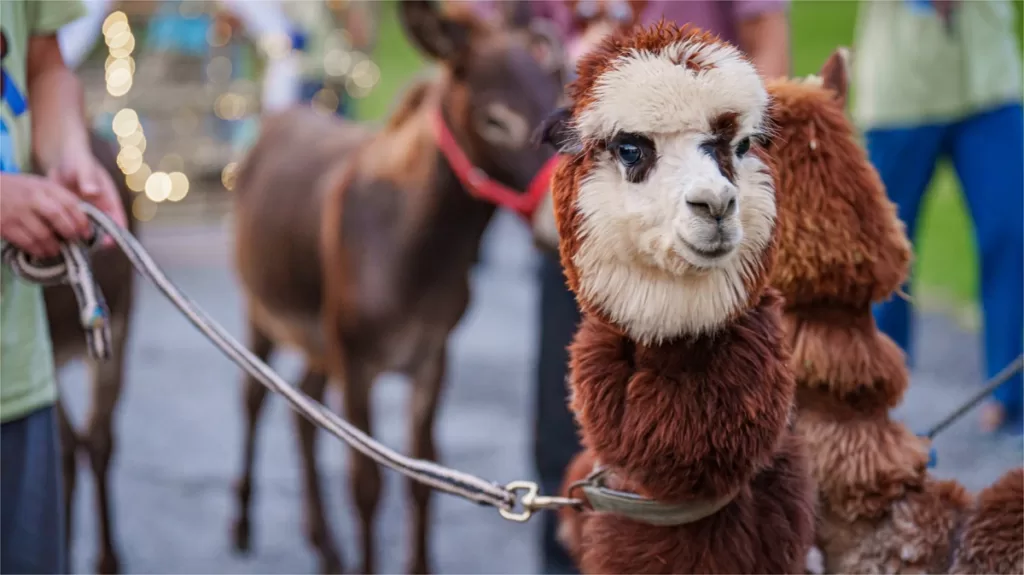
Wuxi Zoo Taihu Amusement Park
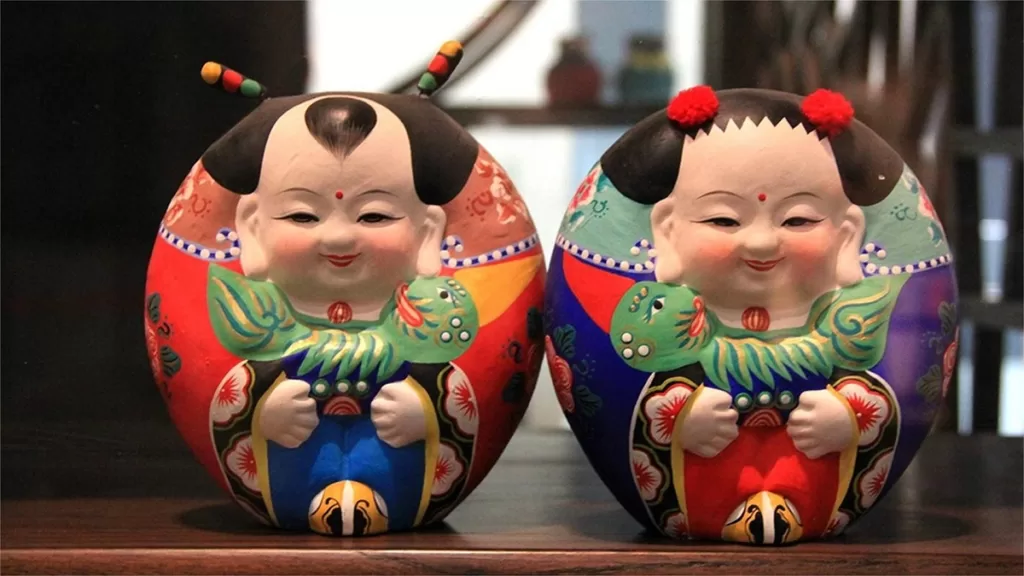
China Clay Figurine Museum
Jiangsu historical sites, Wuxi Attractions